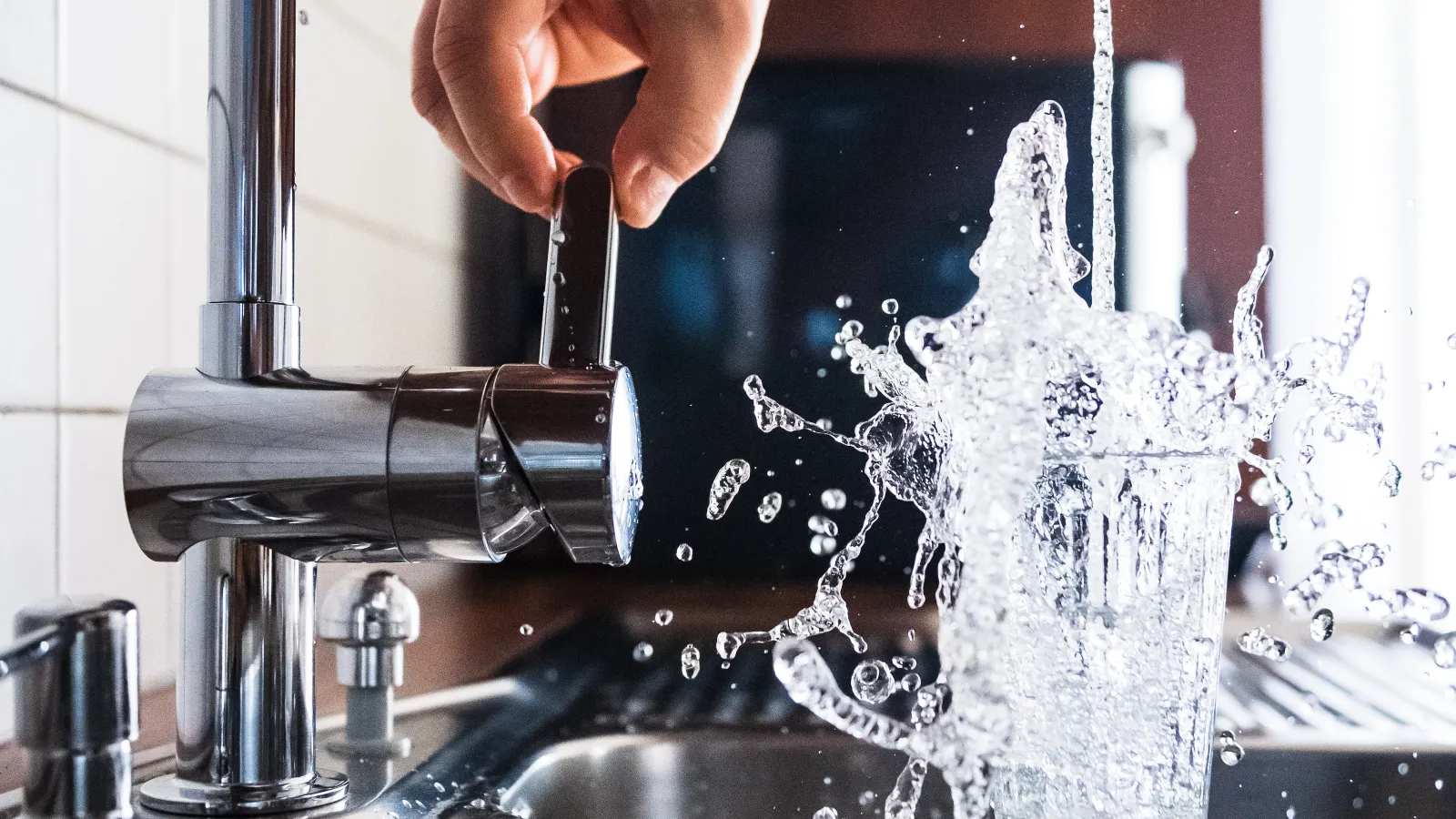Simple Summer Water Quality & Conservation Tips to Save Money

From pools to plants and games to grass, we all want a little water to stay cool in the summer. However, as we know from Atlanta’s sizzling summer heat, water conservation is a necessity. Fortunately, there are some simple things homeowners can do to keep your health and home safe while maintaining your water quality.
Why Is Water Conservation and Preserving Your Water Quality So Important?
According to the U.S. EPA's WaterSense program, water consumption in the average American home on summer days can spike to 1,000 gallons per day, compared to 260 gallons per day during the “off” season (or fall and winter).
- Homeowners use between 30-70% of water outside.
- Experts estimate that 50% of the water used outside goes to waste due to evaporation, wind or runoff due to overwatering.
To help reduce water usage, which also helps reduce your utility bill, then review water bills and compare winter and summer usage to understand how much water you use outside.
Simple Water Conservation Tips
The Water Quality Association provides a free limited edition of Water Treatment For Dummies to answer common questions about the quality of water in your home or business. Plus, the EPA offers some helpful water conservation tips to save water during the summer.
How do homeowners preserve water usage in the summer? Simple, follow some of these water conservation tips.
- Set your lawn mower one notch higher to make your lawn more drought-tolerant.
- Use a broom instead of a hose to clean your sidewalk, driveway or patio.
- Run dishwashers and clothes washers only when they are full and use cold water.
- Keep a bottle of cold tap water in the refrigerator.
- Turn off the tap while you brush and save 8 gallons per day.
- Regularly check your toilet, faucets and pipes for leaks and have them fixed promptly.
- Collect rainwater in barrels to water gardens.
- Re-use water from dehumidifiers or air conditioning condensers for irrigation.
In addition to water preservation around your home, there are also some simple ways to conserve water during the summer.
Save at the Car Wash
Hand washing a car uses about 150 gallons of water versus about 50 gallons at an automatic car wash. Plus, the automatic wash is quicker and much easier.
Shorter Showers
Shortening your shower by 2 minutes can save 150 gallons per month. Plus, it’s summer so there are many more things to enjoy compared to an extended shower.
Rinse Fruit the Right Way
Summer is a great time for fresh fruits and vegetables. However, instead of rinsing produce under flowing water from a faucet, consider filling a bowl of water to wash produce. Plus, pour the leftover water on a plant outdoors instead of down the drain.
Reduce Water Usage and Keep Your Lawn Green
One of the best things about summer is relaxing outside. Part of the beauty in the summer are lush lawns, which means water.
And water means money.
As a general rule, remember that it is better to water your lawn large amounts of water for longer periods of time vs frequent applications of small amounts.
Popular Mechanics notes that shallow watering encourages shallow rooting. In very hot weather, a ballpark range for watering is every other day for perennials and every three to four days for shrubs.
Here are some smart ways to conserve water and help reduce your water bills at the same time.
- Adjust sprinklers to ensure they water the lawn, not the sidewalk.
- Water early in the morning (before 10 AM) or later in the evening (after 6 PM).
- Inspect your overall irrigation system for leaks, broken lines or blockage in the lines.
- Consider replacing some turf area with low water use plants and ornamental grasses.
- Group plants with like watering needs.
- Add a shut-off nozzle to the hose to save about 5-7 gallons each minute of use.
- Adjust your mower to a higher setting because taller lawns provide shade to the roots. and help retain soil moisture, so the lawn requires less water.
Prevent Water Damage During Summer Vacation
Accidents happen and the last thing any homeowner wants is water damage to occur while the family is on vacation.
To help, here are some simple plumbing tips from the neighborly folks at Family Handyman.
Turn Off The Water
Shutting off the main valve that controls all the water for your home is the best protection against catastrophic water damage. Everyone in your home should know where the main water shutoff valve is located so they can stop the water in an emergency.
To find the water valve, then look for the water meter and the main shutoff will be located nearby. Keep in mind that there are two types of main shutoff valves, the gate valve, and the ball valve. If you’ve never shut off the main water valve before, test it before you leave on vacation.
- The gate valve is common in older homes and has a round handle that must be turned a number of times to open or close the valve because gate valves are designed to be fully open or fully closed.
- The ball valve is more common in newer construction and has a lever handle that needs to be turned 90 degrees to turn the water on or off. You can immediately tell if it’s open or not because in the closed position, the lever is perpendicular to the pipes and in the open position the lever parallel.
If you have any questions, the valve is stuck, leaks or fails to completely shut, then contact a licensed plumber.
Turn Off Supply Valves
It is also important to shut off individual water valves for water-using appliances such as dishwashers and washing machines.
- If you can’t shut off the main water supply because you have an automatic sprinkler system or someone watering the plants while you’re gone, shut off the valves to the most common sources of water damage such as dishwashers and washing machines, in case a hose cracks or breaks.
- Individual shutoff valves or “stops” are installed on the supply lines leading to most appliances as well as to toilets and faucets.
- Typical supply stops have a small round or oval handle that you turn clockwise to shut off the flow of water.
Turn Off Exterior Faucets
During vacations or times you’ll be away from home, always close the supply shutoff valve inside the house.
- Outdoor faucets are the first plumbing parts to freeze (in the winter) and burst when the temperature drops.
- After turning off the supply shutoff, open the outside faucets to drain the remaining water out of the pipes.
- Never leave a hose connected to an outdoor faucet because it traps water in the faucet, which can freeze and crack open the faucet (in the winter).
Snappy Electric, Plumbing, Heating, & Air Provides Water Quality Solutions
Water is vital and clean water is incredibly important. Families play outside and eat fruits from the garden, so it is important to ensure your water quality is up to par. It may seem out of mind, but the water that is being used to water your lawn and garden is what makes your plants grow.
Snappy Electric, Plumbing, Heating, & Air has the experience and skills to help with any water problems. We install the very best water softening and filtration equipment plus we repair all makes and models should anything go wrong with your current system. For a free in-home water analysis and proposal on the water treatment solution that’s right for you, contact our team today. Snappy Electric, Plumbing, Heating, & Air provides water quality solutions to all of our local service areas.

